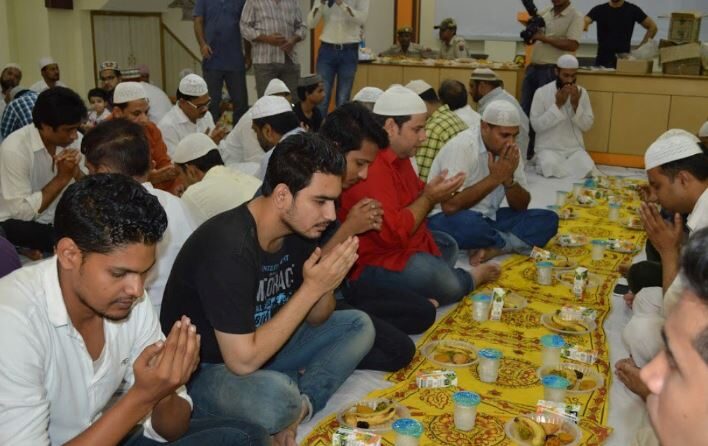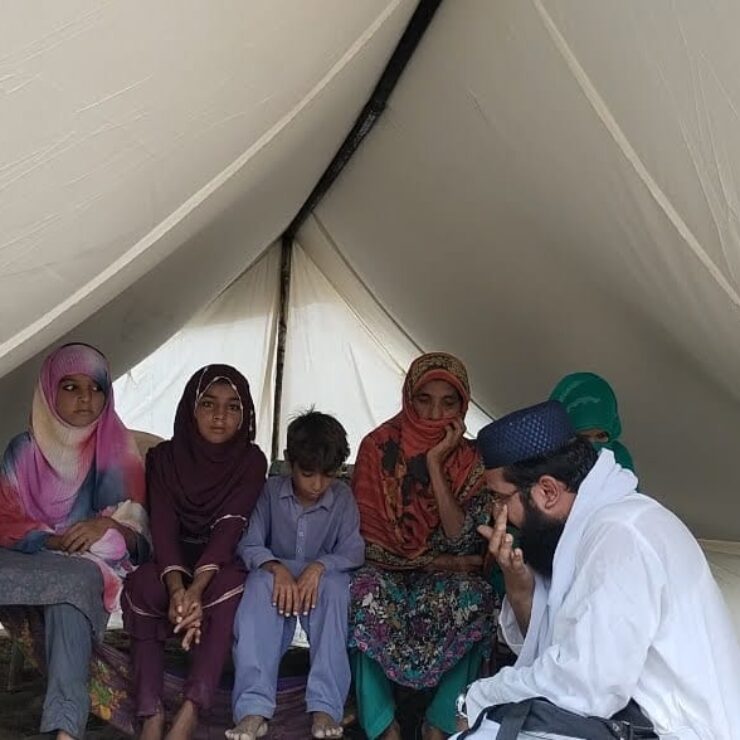
Food Project
Food Program for Iftar and Suhoor: Supporting Orphans and Underprivileged Families
During the holy month of Ramadan, fasting from dawn until dusk becomes a spiritual journey for Muslims worldwide. However, for many orphans and low-income families, arranging meals for Iftar (evening meal to break the fast) and Suhoor (pre-dawn meal) is an immense challenge. In response to this need, AWF’s Food Program provides nutritious meals to ensure these vulnerable groups can observe Ramadan with dignity, receiving the blessings of proper nourishment and community support.
How AWF’s Food Program Works
AWF’s Food Program is designed to reach the most vulnerable groups in society. With dedicated teams and a network of volunteers, we operate across various regions to ensure no one is left behind. Here’s a closer look at how our program operates:
Food Pack Distribution: We distribute food packs containing essential items like rice, flour, lentils, cooking oil, dates, and other staple items. These packs are designed to sustain a family through the month, enabling them to prepare wholesome meals for Iftar and Suhoor.
Community Iftar and Suhoor Meals: In areas with high concentrations of need, AWF organizes community Iftar and Suhoor gatherings. These events not only provide meals but also foster a sense of community and inclusion, allowing people to come together and break their fast with dignity.
Special Meals for Orphans: Our program places a special emphasis on orphanages. Many orphanages struggle to meet the dietary needs of children, especially during Ramadan. AWF steps in to provide these children with nutritious meals, ensuring they experience the blessings of Ramadan fully.
Daily Meal Service: For the poorest families, daily meal services ensure that each day of Ramadan, they receive Iftar and Suhoor meals without having to worry about how to obtain food. These meals are carefully planned to meet nutritional needs, enabling families to observe the fast in good health.
On-the-Ground Support: AWF’s dedicated staff and volunteers work tirelessly to ensure smooth operations. From sourcing quality food supplies to preparing and distributing meals, each step is managed meticulously to reach as many people as possible.
Types of Meals Provided
The meals provided through AWF’s Food Program are designed to offer balanced nutrition while keeping in mind traditional foods served during Ramadan. Here’s an example of what a typical Iftar and Suhoor meal includes:
Iftar Meal: Dates, fruit, yogurt, pakoras, biryani, or pilaf, along with water and juice for hydration. Each meal is prepared to provide the necessary energy and nutrition after a day of fasting.
Suhoor Meal: Meals typically include bread or rice, eggs, yogurt, and sometimes parathas or curries. Suhoor meals are designed to sustain energy levels throughout the day and provide essential nutrients to help individuals fast comfortably.
These meals provide a balanced combination of proteins, carbohydrates, fats, and vitamins, ensuring that beneficiaries receive wholesome, sustaining nutrition.
Impact of AWF’s Food Program
The AWF Iftar and Suhoor Food Program positively impacts thousands of lives each Ramadan. The program does more than provide meals—it offers hope, relief, and a sense of community to those who would otherwise struggle to observe the holy month.
Improved Health: With regular, nutritious meals, orphans and families experience better health, which helps them stay active, productive, and more spiritually engaged during Ramadan.
Empowerment and Dignity: By providing food security, AWF empowers families to observe Ramadan with dignity. Knowing that they have access to meals lifts the stress of daily survival, allowing them to focus on their spiritual practices.
Community Building: The gatherings for Iftar and Suhoor meals create a strong sense of unity, encouraging community members to come together and support each other.
Educational Impact: For children, especially those in orphanages, adequate nutrition directly affects their ability to learn, grow, and thrive. By addressing food insecurity, AWF contributes to the betterment of these children’s education and future prospects.
How You Can Support AWF’s Food Program
The AWF Food Program relies on generous contributions from individuals, families, and organizations who share our mission. Every donation goes toward sourcing, preparing, and delivering meals to those in need, creating a direct impact on their lives.
You can support the program in several ways:
Donate: Your donation can provide a family with enough food for Iftar and Suhoor throughout Ramadan. Contributions of all sizes make a difference.
Volunteer: Join us on the ground to help distribute meals, organize events, and support our efforts in the community.
Raise Awareness: Spread the word about AWF’s Food Program. By sharing information with friends, family, and social networks, you can help us reach more people in need.
Sponsor a Family or Orphanage: Sponsor a month’s worth of meals for an orphanage or a family, ensuring they receive regular, nutritious food throughout Ramadan.



